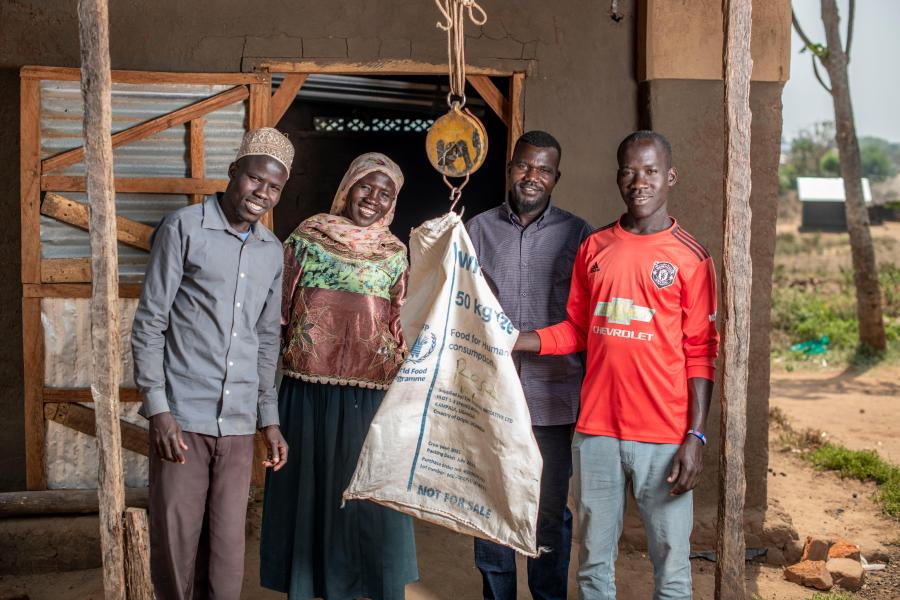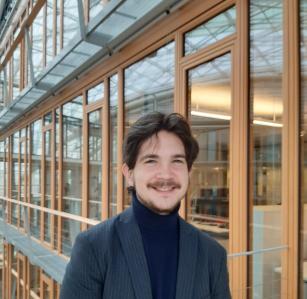In Uganda financial literacy training helps refugees and host communities develop the necessary skills to grow businesses and transform lives
Imagine fleeing your home with little more than the clothes on your back and the few items you can carry. You are running for your life — forced to leave your job, belongings, family, and memories behind.
This was the reality for Mary Nadia, one of the 1.3 million South Sudanese refugees in Uganda. In 2016, Mary and her family fled their homeland, seeking refuge from the conflict there. Escaping in a small car, she started anew in Bidibidi, Uganda.
By watching videos online, Mary taught herself to cut and sew clothes, transforming her passion into a source of income. But setting up a business was not easy, as Mary struggled to understand how businesses operate in Uganda. “I just used my money recklessly,” she says. “If I got money today, I would just spend all of it. That poor management of money made me become poor.”
So she participated in Centenary Bank’s two-week training for entrepreneurs in 2019. With support from the European Investment Bank, the Ugandan bank provided business and financial training to over 1 776 refugees and local entrepreneurs across Uganda.
Now, Mary is a proud owner of a successful tailor’s shop. “I hope in the future my shop will grow big, so that I secure the future of my children,” she says.
Training for a better future
Centenary Bank serves vulnerable communities in Uganda and contributes to the country’s socio-economic development. The bank decided to offer business training in nine districts with significant refugee populations: Isingiro, Kamwenge, Hoima, Masindi in Western Uganda; Adjumani, Arua, Koboko, Yumbe in the North Nile and Kampala in Central Uganda.
Refugees, women, and local entrepreneurs learnt how to operate banking technologies and make use of basic business skills like costing, pricing, and bookkeeping. Mary used her new skills to track better her expanses, enabling her eventually to produce more clothes, buy more machines and even hire more people
The training helped the refugees — and Centenary Bank. The bank found new staff and improved its business volume. “Refugees have shared experiences with us,” says Fabian Kasi, managing director of Centenary Bank. “And all this has made it very useful and beneficial for our project.”
Financial inclusion across Africa
Centenary Bank’s project is the first of its kind in Africa. The European Investment Bank’s support played a vital role in making it possible, Kasi says.
The Ugandan initiative is part of the EIB Banks Technical Assistance Program for Eastern Africa, created in 2014 to offer advice and capacity-building skills to banks and their customers, such as refugees, across East Africa. The European Investment Bank has already refinanced Centenary`s microfinance portfolio a few times. First in 2012 with a loan of €8 million, then in 2019 with a loan of €15 million, and the latest loan of €10 million was signed in December 2021.
“Loans to finance microfinance activities, combined with technical assistance, help microfinance banks, such as Centenary, to best support small and medium-sized enterprises,” says Hannah Siedek, a senior microfinance investment officer at the European Investment Bank. “The beneficiaries of such loans use the provided liquidity, for example, to hire additional staff able to sell more bread. So, the baker can generate more income, grow her business, diversify her product and maybe, even pay for her kids` school fees.”
In practice, this initiative adds up to training 2 200 Centenary Bank staff, supporting 75 capacity-building exercises, and changing the lives of 6 000 entrepreneurs across Uganda. Mary, for example, is sharing her craft with other single mothers in her community, helping them earn their own money and create a better future for their kids in Uganda.

“When we arrived I was looking to do something good for my family.” Says David. “Now, Uganda is our new home and it’s okay”
Microfinancing is an important driver of socio-economic change in places like Bidibidi. Take the story of David Mutamuta who arrived in Bidibidi in September 2016. To improve the life of his family, he took a Centenary Bank training in kitchen gardening and vegetable growing in 2019.
Using the knowledge he gained, David has grown his business by buying cassava farms and building a store where he can sell all his harvest. His efforts are helping his family and the refugees around him feel at home.
“I think it’s necessary for refugees to learn financial literacy because in South Sudan we would spend money recklessly. If we continued with that habit, we would be zero-zero now,” says David. “But, the business has changed and I must say that proudly.”
